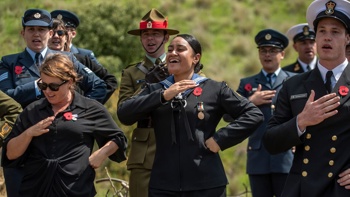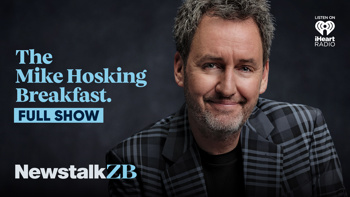New Zealand could follow the United Kingdom in bringing in age restrictions for online pornography and blocking websites which refuse to comply.
Department of Internal Affairs Minister Tracey Martin, who also holds the children's portfolio, says young people are being "bombarded" by internet pornography and she wants censorship laws to be strengthened.
"This is a really, really big issue to New Zealand and we are going to have a serious conversation about it," she told the Herald.
"And I hope to make sure we have this conversation in this term of Government."
Martin supports the approach of the United Kingdom, which has ambitious - and controversial - plans to introduce mandatory age verification for pornographic websites later this year.
She made the comments after the Chief Censor began a major piece of research on New Zealand teenagers' online pornography habits. Expected to be completed in December, the research will be used to inform Government policy, including possible regulation.
"We're pretty excited about it," Chief Censor David Shanks said. "We think it's going to give us some potentially world-leading data on the New Zealand situation and teens and pornography.
"With this research our aim is to get solid evidence about the experiences and perspectives of young people on the table so there can be an informed debate."
The Office of Film and Literature Classification began the survey last week of 2300 people aged between 14 and 17.
"In our view policy in this area does need some consideration, in terms of how do you regulate use and access to porn in the digital environment," Shanks said.
"The question there is . . . when the average age to get a smartphone is 10 and a half to 11 years old, what sort of tools and restrictions can we really place on access to material that's widely available on the internet?"
Martin said the Chief Censor's research was "vital work", though she is already intent on changes.
"I have already had conversations with the Chief Censor with regard to a particular drive of mine to make sure we as a nation do something about what is the bombardment of pornography and the easy access to pornography that our young people are experiencing.
"Considering our censorship laws were pre-internet, this is an area that we have left for a long time without addressing and I think we need to address it."
New Zealand censorship laws already ban some types of pornography, such as material which includes violence, rape or degrading acts. But the Office of Film and Literature Classification's work is mostly limited to DVDs released in New Zealand, and online pornography is effectively unregulated. The Department of Internal Affairs' work in this area is primarily focused on online content featuring child sexual abuse.
The UK Government has a policy which allows internet service providers to block porn websites unless people older than 18 "opt in" to use them. It plans to go further this year by bringing in age verification requirements for online pornography, which will include powers to block websites which don't offer "age gates".
Martin said she was not interested in wholesale bans on online content because they did not work. But she supported the UK Government's approach, saying she was interested in any policy which helped to protect young people.
"I would really like to watch how they implement it and see what are the challenges for them," she said.
Justice Minister Andrew Little, who would have joint responsibility for any regulation changes, said he was aware of concerns that had been raised about the effects of pornography on children. He was open to ideas about regulatory approaches which New Zealand could take to address these problems, he said.
Shanks said new regulations may not be required at all, or they could be part of a range of solutions including education for young people.
He said any causational link between viewing pornography and sexual assault was "very difficult to prove", but there was enough evidence to urge caution about the impact of widely accessible pornography.
His office was keeping a close eye on the UK model, which has stirred debate about internet freedoms and whether the internet can be effectively regulated.
"It's certainly not an easy thing to implement socially or technologically," Shanks said. "It's just worth paying attention to, to see if gets traction or not."
The survey of internet pornography use will ask if teenagers look at online pornography, how often, what sort of content, why they are looking at it, and how they are viewing it. It requires parental consent, but the participants will fill out the survey anonymously and privately.
PORNOGRAPHY AND THE LAW
• Censorship laws ban "objectionable" publications, which include exploitation of children, violent sex or rape, necrophilia, use of urine or excrement for degrading sexual conduct, bestiality, or torture.
• The Chief Censor reviews all DVDs released or imported into NZ, but online content is effectively unregulated.
• The Department of Internal Affairs (DIA) monitors online use and primarily focuses on material related to child sexual abuse.
• A filtering system run by DIA blocks websites which contain child sexual abuse content.
Take your Radio, Podcasts and Music with you








